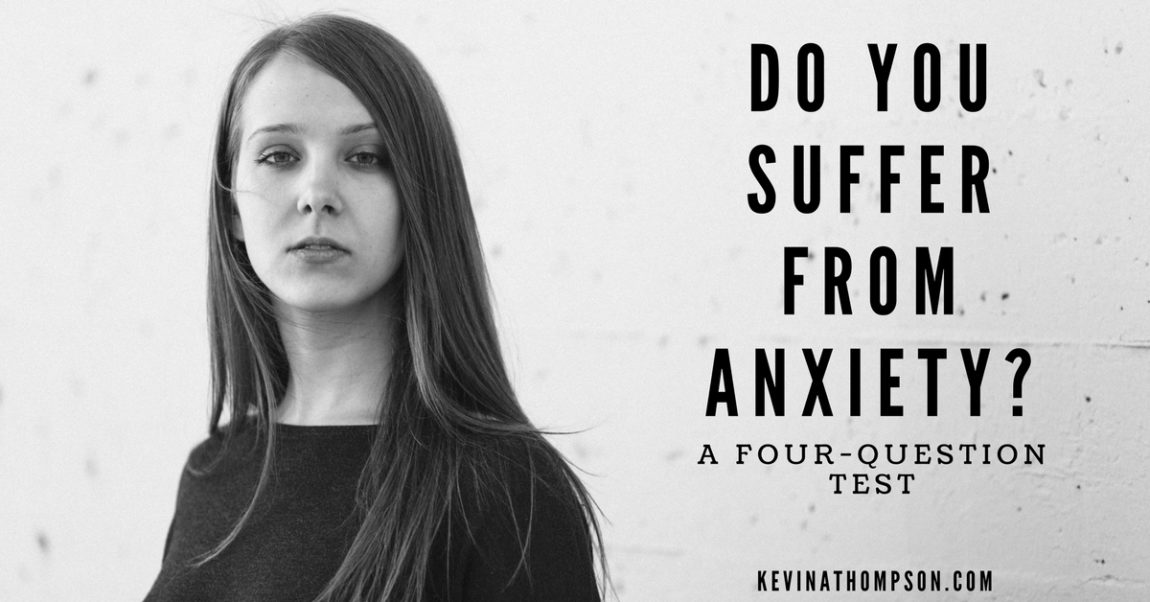Can you vote differently than your best friend and it not negatively impact the relationship?
Can you disagree with your mother-in-law and still share a deep respect for one another?
Do you understand that even if your favorite team fired their coach tomorrow, no matter who they hired it wouldn’t erase most of their problems?
Do you realize that even if you won the lottery tomorrow, a year from now you would be about as happy as you are right now?
If the answer to any of those questions is no, you may be a part of an anxious community.
Anxiety is most often thought about through the lens of an individual. Everyone has experienced moments of worry and concern over possible outcomes or future events. Others struggle with continuing ruminations of stress. Some have these seasons that become an anxiety disorder. (See: Anxiety–Learn From It Before You Fix It)
But we often fail to think about anxiety in the context of communities. Just as individuals experience anxiety, communities can experience anxiety as well. Families, corporations, and teams can take on an anxious air. Members of the communities can reinforce each other’s negative thoughts and create a climate where worry and concern negatively influence behavior. The problem with anxiety is that it breeds anxiety.
In his book, A Failure of Nerve, Edwin Friedman writes that chronically anxious communities are characterized by four things–reactivity, blame displacement, herding, and a quick-fix mentality. These four qualities create a good litmus test for ourselves and the communities we are in regarding anxiety.
Are You Overly Anxious?
Everyone experiences moments of worry and concern, but how do we know when our anxiety has become a problem? How can we recognize when anxiety is defining a workplace, home, or team? Consider Friedman’s characteristics:
1. Reactivity. Healthy individuals and communities make goals and try to attain them. While everyone has to respond to life’s circumstance, unhealthy communities become reactionary. Every action is simply a reaction to something taking place. Little thought, discernment, or strategy is used. Instead, they are continually reacting to things taking place around them–an addicted child, an aggressive competitor, a wrong comment on Facebook, etc. When we react, we are handing control of our actions to another. When we respond, we are choosing what we will and will not do. Anxiety creates reaction at the expense of response. If you are living in a continual state of reaction, you are likely overly anxious.
2. Blame Displacement. Healthy people can take personal responsibility for their actions;
unhealthy people cannot. Because they are concerned with what might happen, they attempt to push blame on other people. By making them the scapegoat, it feels as though they are giving themselves breathing room. Yet blaming others for our actions and outcomes is a tell-tale sign of anxiety. When we don’t feel threatened, we can easily own mistakes or misjudgments. Taking responsibility empowers us to make changes. But as we feel endangered, we blame others in hopes of protecting ourselves. This blame paralyzes us, making life feel more like something happening to us than something we are doing. It also splinters relationships as communities fail to support one another and instead look to use one another. If you think the negative outcomes of your life primarily caused by someone else, you might be experiencing anxiety.
3. Herding. When we are at peace and confident about who we are, differences in other people intrigue us, strengthen communities, and are seen as positives. When we feel threatened, differences in appearances, beliefs, or actions are seen as dangers. Anxious people herd together into monolithic communities, ostracizing anyone who looks, thinks, or acts differently than them. Instead of seeing differences as strengths, they are viewed as signs of danger. As they blame others, they distance themselves from them. This creates a clear “us vs. them” mentality. When your family or community becomes chronically anxious, the worst thing that can happen to you is for you to hold an opinion or view like “one of them.” If a differing political opinion spoken at the dinner table ruins Thanksgiving, you likely are in an anxious family.
4. Quick-Fix Mentality. The strain of anxiety makes us weary. This erodes our ability to think in complex ways. The result is that we foolishly believe there is a silver bullet. We think one change will solve everything. Generally, these concepts work together so as we displace blame, we believe if that person would change everything would be okay. Of course, life and problems are far more complex than being something one silver bullet can fix. While one change can spur a series of transformations, just one solution rarely fixes every problem. To think there is a magic fix is not a sign that an issue is simple, it reveals that our thinking is skewed. Does the fan base of your favorite team think changing coaches will fix a long culture of losing? If so, chances are your fan base is chronically anxious.
Step One
The first step when it comes to anxiety is simply recognizing it. Knowing its presence won’t create change, but it is the prerequisite for change to occur. When a community experiences chronic anxiety, someone must recognize the plight and begin to make conscious choices in order to change the culture. Until leaders see the problem, they are prone to further the communities poor thinking of reactivity, blame displacement, herding, and a quick-fix mentality. (See: Does Praying Add to Our Anxiety?)
However, as individuals begin to recognize the symptoms of organizational anxiety, they can start thinking in new ways. They can start responding and stop reacting. They can begin to model personal responsibility. They can seek and celebrate differences rather than ostracizing those who are different. And they can make tangible steps of change without believing that one magic bullet is going to fix everything.
Can you see signs of chronic anxiety in yourself? Your communities? Your country?





5 Responses to Do You Suffer from Anxiety? (A Four-Question Test)